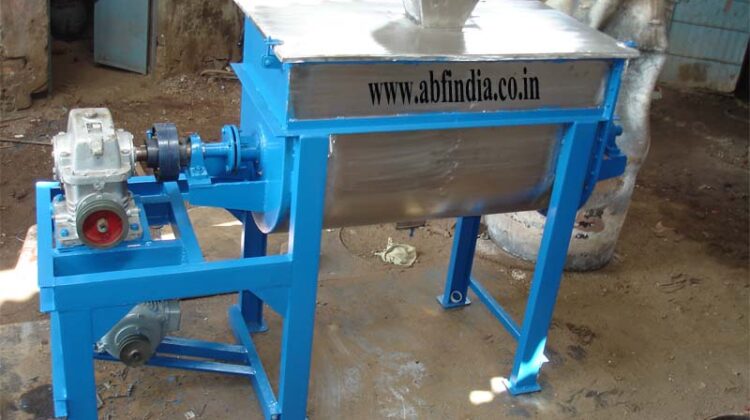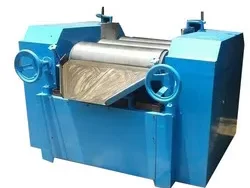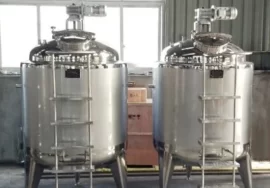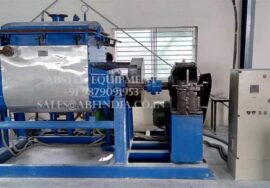
Ribbon Blender Mixer: Working Principle, Structure, and Mixing Calculations
Ribbon Blender Mixer: Working Principle, Structure, and Mixing Calculations
Introduction
A ribbon blender is a commonly used equipment for mixing powders and granules, known for its uniform mixing and high efficiency. This article will introduce the working principle, structural components, and related calculations of the ribbon blender to better understand its operation mechanism.
More details please reference our website
Working Principle
The ribbon blender mixes materials through the rotation of double helical ribbons. The inner and outer helical ribbons rotate in opposite directions, creating a complex circulation movement within the mixing chamber, achieving uniform mixing.
Structural Components
The ribbon blender primarily consists of the following parts:
- Machine Body (1): The supporting structure of the entire equipment.
- Mixing Chamber (2): The space for holding and mixing materials.
- Agitator (3): The core component, consisting of inner and outer helical ribbons.
- Feed Inlet (4): The channel through which materials enter the blender.
- Discharge Outlet (5): The channel through which mixed materials are discharged.
- Engine (6): The power source.
- Reducer (7): Adjusts the speed of the agitator.
- Feed Screw Conveyor (8): Transports materials to the mixing chamber.
- Discharge Screw Conveyor (9): Transports mixed materials out of the blender.
Structural diagram of the mixer
Agitator Structure
The agitator is the key component of the ribbon blender. As shown in Figure 3, the agitator consists of three layers of helical ribbons, with varying diameters and pitches.
The geometrical parameters of the agitator are shown in the table below:
| Parameter | Symbol | Value | Unit |
|---|---|---|---|
| Outer ribbon diameter | D1 | 1 | m |
| Middle ribbon diameter | D2 | 0.75 | m |
| Inner ribbon diameter | D3 | 0.4 | m |
| Outer ribbon inner edge diameter | d1 | 0.9 | m |
| Middle ribbon inner edge diameter | d2 | 0.65 | m |
| Inner ribbon inner edge diameter | d3 | 0.26 | m |
| Outer ribbon pitch | h1 | 0.3 | m |
| Middle ribbon pitch | h2 | 0.4 | m |
| Inner ribbon pitch | h3 | 0.24 | m |
| Ribbon width | g | 0.05 | m |
| Agitator length | l | 1.8 | m |
Applications
- Seamless mixing of drugs, cosmetics and other materials.
- Dry blending of capsule ingredients.
- Suitable for the blending of dry solids.
- Dry granules and pellets in huge volumes can be lubricated quite easily.
- Ideal for the manufacturing of polymer blends, composite fillers and pharmaceutical powders and thus making this machine an obvious choice for pharmaceutical manufacturing purposes.
- Used for blending infant food, dried food products, cereals, dietary supplements and instant drinks in the food & beverage industry.
It can be easily concluded that the ribbon blender and mixer can just not be done without. If you need more information about various mixers and blenders, feel free to write in to us.




